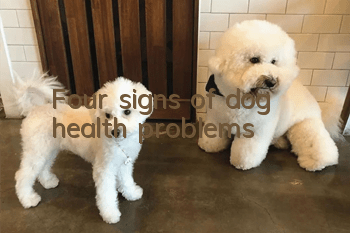Older dogs drink more water and urinate more. These symptoms may be signs of illness.

Older dogs drink more water, urinate more or have diabetes
When you find that your dog is often thirsty and urinates frequently, loses weight, gets tired easily, is irritable, suffers from repeated infections, blurred vision and slow wound healing, etc. symptoms that you should consider whether your dog has diabetes. Diabetes is mainly caused by insufficient insulin secreted by the pancreas. The function of insulin is to promote glucose in the blood circulation to enter liver cells, muscle cells, fat cells and other tissue cells to synthesize glycogen, lower blood sugar, and promote the synthesis of fat and protein. Diabetes can be hereditary and most commonly affects dogs as young as 8 or 9 years old, and is more common in female dogs. Dog breeds that are particularly susceptible to diabetes include Samoyeds, Cairn Terriers, Pugs, Toy Poodles and Miniature Schnauzers.Older dogs drink more water, urinate more, or have kidney disease
When your dog shows symptoms such as polyuria and polydipsia, loss of appetite, weight loss, vomiting and diarrhea, etc. Most likely there is something wrong with their kidneys. The kidneys remove metabolic waste from the body and maintain body balance. When kidney function is damaged, waste and toxins can accumulate in the body and cause serious damage, leading to kidney failure. It may also cause kidney stones, blockage of the urinary tract, or bladder rupture. The history of chronic renal failure is characterized by frequent occurrence in older dogs, and the course of the disease is often the result of accumulation over many years.Bleeding, red and swollen gums or gum disease in older dogs
If you notice bleeding, tenderness, redness and swelling in your dog’s teeth, your dog may have suffered from the disease. Got gum disease. Gingivitis often precedes periodontitis. When oral bacteria turn into plaque on the teeth, the gums become inflamed. Saliva then hardens the plaque and creates tartar. The bacterial plaque and tartar on the teeth spread through the gums and cause swelling. If left untreated, gum disease can progress to periodontitis, which can spread bacteria into the bloodstream and cause serious damage to other organs.Old dogs are reluctant to walk or have arthritis
When the dog’s gait changes, it is unwilling to walk or go up and down stairs, has difficulty standing and walking, and shows obvious symptoms When your dog is irritable or aggressive, it is likely that he has arthritis or osteoarthritis. Arthritis is a progressive, degenerative disease that affects older dogs and obese dogs. The disease can affect one or more joints, causing them to become swollen, stiff, and painful. At this time, we should make some changes in diet and exercise, and cooperate with drug treatment if necessary. Golden retrievers, Labrador retrievers, and poodles are generally more likely to suffer from this disease. Random articles
- Diagnosis and treatment of canine esophagitis
- How to feed dogs during different physiological stages?
- Will the dog recognize its old owner?
- How long should you soak dog food for your puppy?
- Can dogs eat peach pulp?
- Does it matter if your dog eats durian core?
- What medicine should I use if my dog has a cold and runny nose?
- Is the injection still effective after 4 days after being bitten by a dog?
- Which three types of dogs are the three stupid ones?
- Teddy can be hungry for several days if he is a picky eater



